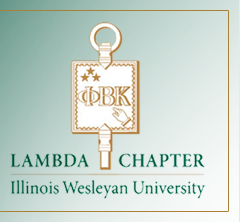Abstract
Composer's Notes
I composed American Spring during the 2015-2016 school year, my final year as an undergraduate at Illinois Wesleyan University, in connection with the 150th anniversary of the end of the Civil War. This opera takes place mostly in April 1865, the year Richmond burned and Lincoln died, and deals with America’s feelings of pride and shame in war. The opera’s main character is Varina Davis, the wife of confederate President Jefferson Davis. Varina offers the 1860’s Southern perspective on slavery and the war, one glossed over in most readings of our history because it is so obviously repugnant today. Varina’s personal slave, the character Betsy, offers direct counterpoint. The Civil War's final moments are also seen from the fervent perspective of the soldiers, as well as from the grieving eyes of Mary Todd Lincoln.
The large variety of musical elements in this opera are meant to depict the complex and dynamic layers of the story while still being tied together by memorable themes. Musical styles range from bitonality and non-tonality to chant and chorale singing, with a rock n' roll groove stuck in the middle. Despite the stylistic differences within the opera, every bit of music contains a sense of the unique American spirit. The music, although it can be seen as a captivating entity in itself, is ultimately meant to serve the drama.
My father, a Civil War enthusiast, had the original idea for the opera. We worked together on shaping the story, and the final product became a combination of historical retelling, personal drama, and modern political allegory. Many lines from the opera come directly from the actual words, spoken or written, from these historical characters. American Spring is meant to document the rise and fall of American morale during a particularly triumphant yet ruinous Spring of American history, as well as ask important questions about American values, and our capacity to make mistakes, for modern audiences.
- Sam Mullooly
Librettist's Notes
Collaborating with Sam on American Spring has been a real joy. I spent many hours over the years sharing Civil War battlefield tours with my Dad, Jack Mullooly. So in a way this is the work of three generations. I am so lucky and blessed to have had this opportunity. Besides Jack and Sam, I would also like to thank the authors and works who helped surface many of the voices that found life here in song, including the speeches of Joshua Chamberlain, his fabulous work, The Passing of the Armies, Ashley M. Whitehead’s article "Varina Davis and the Elusive Paradigm of the Politically Elite Confederate Woman," Jefferson Davis - a Memoir by His Wife Varina Davis, Mary and A.A Hoehling’s The Day Richmond Died, James R. Gilmore’s Personal Recollections of Abraham Lincoln and the Civil War, John J. Pullen’s The Twentieth Maine, and Anthony Dawson, John Finerly, Delia Garlic, and other former slaves and interviewers and editors involved in the slave narrative interviews compiled by the Library of Congress in Life Under the Peculiar Institution. I would also thank the many historians and authors who have helped shape my views and interest in the Civil War over the years, including friends from the Civil War Roundtable in Milwaukee and in Chicago.
Finally, I would note that, while many of the details in American Spring are historical, it is foremost a work of artistic expression, and Sam and I have felt free to take license where we judged it appropriate.
- Tom Mullooly
Recommended Citation
Mullooly, Sam and Mullooly, Tom
(2016)
"American Spring,"
CrissCross: Vol. 4:
Iss.
1, Article 5.
Available at:
https://digitalcommons.iwu.edu/crisscross/vol4/iss1/5
Included in
Composition Commons, Life Sciences Commons, Physical Sciences and Mathematics Commons, Social and Behavioral Sciences Commons

